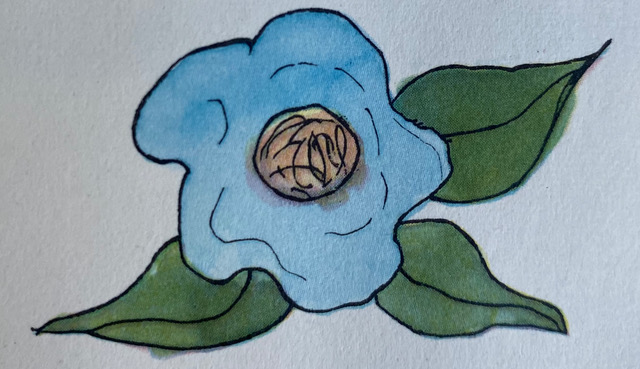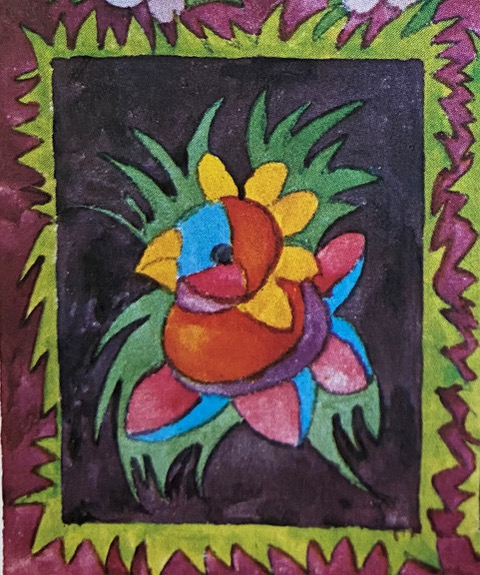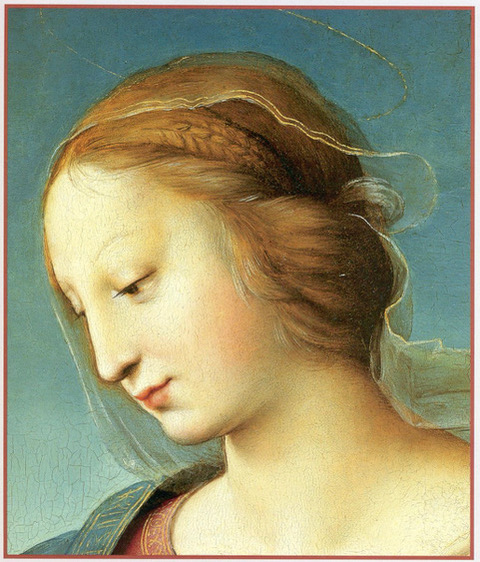“The Niccolini-Copwer Madonna” by Raphael
Here is a summary of the recent Section for Literary Arts & Humanities meeting of the local group in Fair Oaks, CA. This meeting occurred on December 19, 2020 via Zoom.
“At a Glance . . .”
- This was our last meeting for the year 2020. I will set the date for our first meeting in 2021 after the Holy Nights
- Special Section-inspired event: Charles Dickens’ A Christmas Carol: a fireside retelling with music for the Holy Night December 31. This event is an offering to the Faust Branch. The Branch will send out the Zoom link, and I will send out a reminder email with the link before the event. Meeting time is 7:30. Presentation time is 1 hour
- Advent Celebration: At our meeting on December 19 we looked back over our work in 2020. We discussed Hermann Hesse’s novel The Glass Bead Game. This Advent celebration evening included music, poetry, and a discussion of the Literary Arts Section — its mission, history, and meaning
“Tell me more . . .”
Last night’s meeting consisted of an Advent Celebration that featured a lecture, reflections, poetry and music.
In a short lecture, I attempted to situate Hermann Hesse in the literary stream that includes authors such as Goethe, Novalis, and Schiller. I did this with respect to three themes that we find foregrounded (among others) in Hermann Hesse’s final novel The Glass Bead Game. Rather than paraphrase those remarks for the purpose of this summary, I will share a quote from the novel — a quote that we looked at last night.
“But to return to our own, Castalian cheerfulness, it may be only a late born, lesser variety of this great universal serenity, but it is a completely legitimate form. Scholarship has not been cheerful always and everywhere, although it ought to be. But with us scholarship, which is the cult of truth, is closely allied to the cult of the beautiful, and allied also with the practice of spiritual refreshment by meditation. Consequently, it can never entirely lose its serene cheerfulness. Our Glass Bead Game combines all three principles: learning, veneration of the beautiful, and meditation; and therefore, a proper Glass Bead Game player ought to be drenched in cheerfulness as a ripe fruit is drenched in its sweet juices. He ought above all to possess the cheerful serenity of music, for after all music is nothing but an act of courage, a serene, smiling, striding forward and dancing through the terrors and flames of the world, the festive offering of a sacrifice. This kind of cheerful serenity is what I have been concerned with ever since I began dimly to sense its meaning during my student days, and I shall never again relinquish it, not even in unhappiness and suffering.”
— Hermann Hesse, The Glass Bead Game
I also highlighted Friedrich Schiller again, and I drew attention once more to this representative statement by Schiller concerning Beauty and Truth.
“One will strive to make beauty the mediator of truth, and through the truth to give beauty a permanent foundation and higher dignity.”
— Friedrich Schiller
“Learning, Veneration of the Beautiful, and Meditation”
I then posed some questions to the members and friends in attendance regarding the mission and meaning and history of our Section. Because this was a smaller and more intimate gathering for Advent, I won’t summarize the details of this discussion. I took the opportunity to highlight some themes and questions that have arisen over the past decades during my work on the Section collegium and in Section publications, conversations and meetings. I related these themes to our current local areas of research.
I emphasized continuity — and pointed once again to the lineage stream the flows from the early romantic era of the late eighteenth and early nineteenth century (which finds its source spring in the Renaissance humanist literary tradition, one might argue). This stream includes Goethe, Novalis, Schiller and many of their early romantic contemporary artists and writers and musicians and philosophers and so forth— and I suggested that this lineage stream continued to flow into the twentieth century where it encountered persons such as Karl Julius Schröer, Rudolf Steiner, Albert Steffen, Hermann Hesse, and many others — and that this stream flows onward still, into our present century. And beyond our century, perhaps?
“Only connect.”
— E.M. Forster

“Blue Flower” by Hermann Hesse
Music and Meditation
The evening concluded with a sharing of the poem “Steps” by Hermann Hesse. This poem is found in The Glass Bead Game. The poem puts an emphasis on music. Hesse tells us that the poem is “about the nature of music, or if you will, [it is] a song in praise of music, of its serenity and resolution, its quality of being constantly present, its mobility and unceasing urge to hasten on, to leave the space it has only just entered.” Throughout Hesse’s novel, the practice of music and the practice of meditation are linked intimately. Hesse’s remarks concerning meditation are quite specific — and although he was not a trained musician, he had the same literary attraction to music that we find in many other authors in the literary stream that I mentioned — authors such as Thomas Mann, for example — whose novel Doktor Faustus is a companion novel to Hesse’s The Glass Bead Game.
“On the universal nth language of music. The spirit becomes free, determinately stimulated— which is so beneficial for it— and seems so familiar to it, so patriotic— that for this short moment the spirit is transported to its Indian homeland.”
— Novalis

“Bird” by Hermann Hesse
“Bees of the Invisible”
We finished our Advent evening and our Novalis year with music. I shared a recent performance video of another musical setting of a poem by R.M. Rilke from the “Sonnets to Orpheus” in which Marion recites sonnet 15 from Part 1. You will find this new performance video on the website in the Rilke Project section.
Rilke, too, has accompanied our group for a few years, has he not? His poetry and mood have enlivened our New Moon Salons several times.
Here is a quote shared several times with friends at our New Moon Salons, followed by links to a performance of the Prelude and Sarabande from J.S. Bach’s First Suite for Cello. The Prelude was shared last night, and the Sarabande was shared with the Faust Branch at the All Souls evening in November.
“Nature, the things we move among and use, are provisional and perishable, but, so long as we are here, they are our possession and our friendship, sharing the knowledge of our grief and gladness, as they have already been the confidants of our forbearers. Hence it is important not only not to run down and degrade everything earthly, but just because of its temporariness, which it shares with us, we ought to grasp and transform these phenomena and these things in a most loving understanding. Transform? Yes, for our task is so deeply and so passionately to impress upon ourselves this provisional and perishable earth, that its essential being will arise again ‘invisibly’ in us. We are the bees of the invisible. We frantically plunder the visible of its honey, to accumulate it in the great golden hive of the invisible.”
— R. M. Rilke
Advent Music
Link to Prelude from 1st Cello Suite by J.S. Bach
Link to Sarabande from 1st Cello Suite by J.S. Bach
A Sonnet to Orpheus
Link to “Tanzt die Orange” by R.M. Rilke
May the reader flourish!
“. . . when a human being sees beauty in this world and has a remembrance of true beauty, she begins to grow wings.”
— Plato
“The spiritual world is in fact already open to us.
It is always open.
If we were to suddenly become so alive and supple to perceive it,
We would perceive ourselves in the midst of the spiritual world.”
— Novalis“I often see and feel the outer world connected and in harmony with my inner world in a way that I can only call magical.”’
— Hermann Hesse

